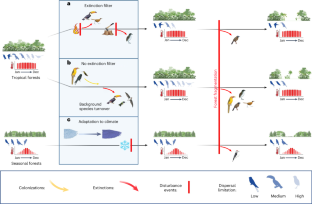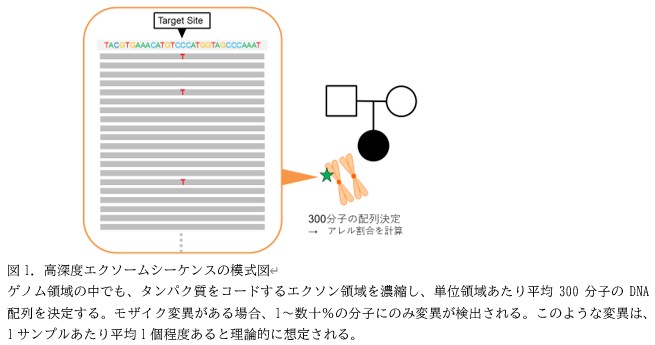2023-05-29 インペリアル・カレッジ・ロンドン(ICL)
◆森林を分断することで、鳥類の生息地が分断され、それによって鳥類の移動や生存に影響が出ます。特に熱帯地域では、森林の間に連結性を高める「回廊」や「飛び石」が必要とされています。鳥の翼の形状が生息地の断片化に対する感受性に大きな影響を与えることが分かりました。この研究結果は、保全活動や保護地域の設計に役立つ可能性があります。
<関連情報>
- https://www.imperial.ac.uk/news/245134/how-forest-fragmentation-affects-birds-depends/
- https://www.nature.com/articles/s41559-023-02077-x
気候に左右される分散能力の変動が、鳥類の森林分断に対する反応を予測する Climate-driven variation in dispersal ability predicts responses to forest fragmentation in birds
Thomas L. Weeks,Matthew G. Betts,Marion Pfeifer,Christopher Wolf,Cristina Banks-Leite,Luc Barbaro,Jos Barlow,Alexis Cerezo,Christina M. Kennedy,Urs G. Kormann,Charles J. Marsh,Pieter I. Olivier,Benjamin T. Phalan,Hugh P. Possingham,Eric M. Wood & Joseph A. Tobias
Nature Ecology & Evolution Published:29 May 2023
DOI:https://doi.org/10.1038/s41559-023-02077-x

Abstract
Species sensitivity to forest fragmentation varies latitudinally, peaking in the tropics. A prominent explanation for this pattern is that historical landscape disturbance at higher latitudes has removed fragmentation-sensitive species or promoted the evolution of more resilient survivors. However, it is unclear whether this so-called extinction filter is the dominant driver of geographic variation in fragmentation sensitivity, particularly because climatic factors may also cause latitudinal gradients in dispersal ability, a key trait mediating sensitivity to habitat fragmentation. Here we combine field survey data with a morphological proxy for avian dispersal ability (hand-wing index) to assess responses to forest fragmentation in 1,034 bird species worldwide. We find that fragmentation sensitivity is strongly predicted by dispersal limitation and that other factors—latitude, body mass and historical disturbance events—have relatively limited explanatory power after accounting for species differences in dispersal. We also show that variation in dispersal ability is only weakly predicted by historical disturbance and more strongly associated with intra-annual temperature fluctuations (seasonality). Our results suggest that climatic factors play a dominant role in driving global variation in the impacts of forest fragmentation, emphasizing the need for more nuanced environmental policies that take into account local context and associated species traits.

